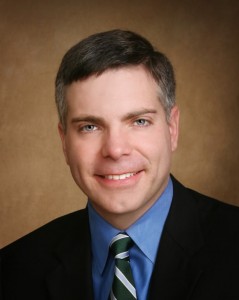Friday Five: Matt K. Lewis
Matt Lewis (@mattklewis) is a conservative journalist, blogger, and political pundit whose work appears at The Daily Caller. He has also appeared in publications like Politico, The Guardian, New York Magazine, The Washington Post, and New York Magazine. He is a sought-after guest on television, making regular appearances on CNN, Fox News, MSNBC, ABC NEWS, and others. Recently, Business Insider named Matt one of the 50 “Pundits You Need To Pay Attention To Between Now And The Election.” He is also the author of The Quotable Rogue. Matt also hosts his own podcast where he interviews leaders from across the cultural spectrum.
I enjoy Matt’s work not simply because he’s conservative like me, but because I find him to be intellectually fair, a rare trait among political bloggers and commentators. I’ve had the chance to interact with him on Twitter and have interviewed him for a project on the pro-life movement.
Matt graciously agreed to spend some time here for today’s Friday Five:
How did you come to affirm a conservative ideology? Was it something you were raised with or something you discovered or affirmed later in life?
When I was five or six, my dad started talking to me about politics. I was intuitively conservative, but it wasn’t until years later that I started actually reading and learning about political philosophy and public policy. This last step is one that too many people never take.
How did you first know you’d like to make a living as a writer and advocate for conservative ideas?
The first step was realizing I was interested in politics, and that — even more amazingly! — it was a career I could actually aspire to. Although my dad was always interested in politics, I’m from a fairly humble background. The notion that I could get paid to write about politics seemed about as remote as the notion that I would be an NBA star.After college, I was blessed to wind up interning — and then working — at a terrific non-profit organization called The Leadership Institute, which trains conservatives to be more effective in public policy. This was one of several improbable big breaks that utterly changed my life.
I was also blessed to have come of age at a time when “blogging” lowered the barrier of entry for young writers. Every job I’ve had in journalism — from Townhall.com — to AOL’s Politics Daily — to The Daily Caller has been with a new media outlet. These jobs didn’t exist a few years ago.
You have a keen eye on the political scene. How do you think the conservative movement is different now than in say, 1980?
This is something I’ve given a lot of thought to, and unfortunately, I still don’t have a conclusive answer. My general take is that the conservative movement is running on fumes — still living off of Reagan’s momentum. Ultimately, I think the next wave will occur after some of the underbrush — some of the existing organizations and self-appointed “leaders” — fade away through attrition. I’m optimistic the conservative movement will survive. It may look a little different, but it will survive. But I think they are about to go through some creative destruction.
How has the role of evangelicals changed?
It’s important to remember that conservatism was a losing electoral proposition until the addition of social conservatives to the movement.Evangelicals — many of whom first became politically engaged in the late 1970s — played a major role in helping elect Ronald Regan to the presidency. But as times change, it’s important to reevaluate their role. Today’s young evangelicals are shifting toward focusing more on issues like poverty rather than hot-button cultural issues like the right to life.
I’m of the philosophy that the two things are not mutually exclusive — that they should be married (pun intended).
I would strongly encourage anyone interested in how evangelicals should impact the political process to model the life of William Wilberforce. And here is a terrific place to start:http://www.qideas.org/essays/cultural-elites-the-next-unreached-people-group.aspx
If you could give a piece of advice to an aspiring blogger, author, opinion writer, what would you say?
Be willing to do it for free — at least, for a while (I did). Constantly work on improving yourself. And realize that being competitive today means doing much more than just writing well. My job today ultimately involves being a reader, writer, interviewer, interviewee, researcher, publicist, self-promoter, social media guru, Tweeter, TV personality, TV and radio “booker,” podcaster.

